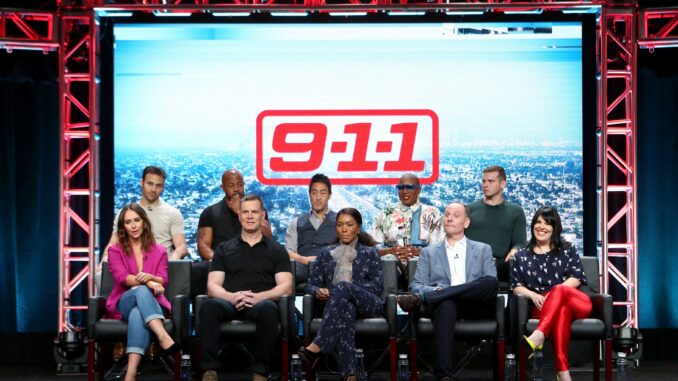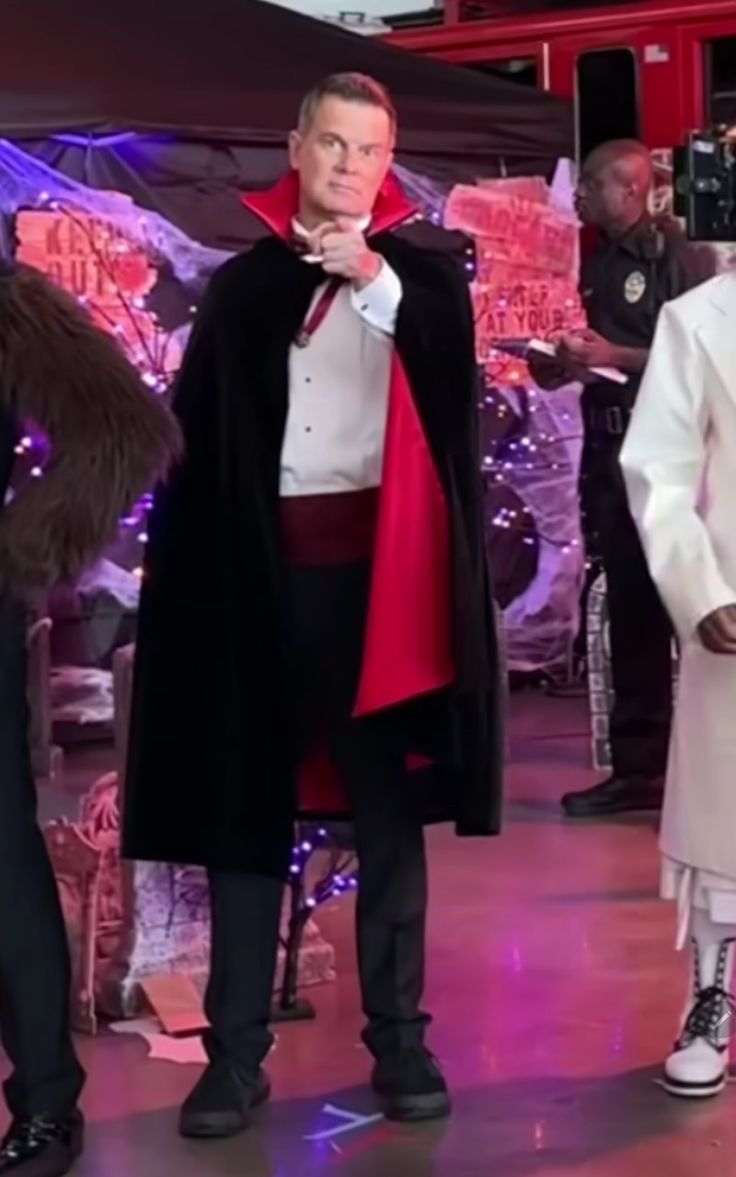
9-1-1: Nashville is quickly becoming one of the most highly-anticipated new shows of the 2025-26 television cycle, but one concerning pattern could set the spinoff up for failure. The third title in Ryan Murphy’s first-responder franchise has already had difficulty, as many believed 9-1-1: Lone Star could sabotage Nashville due to their similar settings. With so little revealed about the upcoming spinoff, signs pointed to 9-1-1: Nashville being nothing more than ABC’s replacement for the previous Texas-based series. As more details emerge, however, it becomes increasingly clear that 9-1-1: Nashville has a unique vision for its pilot season. 9-1-1: Nashville’s cast of characters is already stacked with recognizable names like Chris O’Donnell (Don Sharpe), Jessica Capshaw (Blythe Sharpe), and iconic musicians like LeAnn Rimes. Unfortunately, while 9-1-1: Nashville will certainly have its own identity separate from its predecessors, the past year of network television has proven that isn’t enough for a spinoff to succeed.
The Rise of 9-1-1 and the Promise of 9-1-1: Nashville
The 9-1-1 franchise has consistently delivered heart-pounding action, emotional storytelling, and complex characters since its debut. With spin-offs like 9-1-1: Lone Star already making waves, 9-1-1: Nashville has the potential to be another major hit. But there’s a storm cloud forming over this promising series — and it’s not coming from the script.
So, what’s the problem?
It’s the network TV trend that’s quietly ruining shows before they get a real chance. And that’s exactly why I’m worried about 9-1-1: Nashville.
The Brutal Reality of Network TV in 2025
Ratings Over Storytelling
Network executives are obsessed with ratings — and it’s strangling creativity. If a show doesn’t perform immediately, it risks getting the axe. Gone are the days when shows were allowed to grow over seasons.
“Cancel Culture” in Programming
We’re not talking about the social kind. This is the “cancel it if it’s not trending on night one” mindset. Even promising series get scrapped if their premiere numbers aren’t spectacular.
The Launch Window: A Crucial Misstep
The Danger of Bad Time Slots
A great show can crash and burn if it’s placed in a weak time slot. Late-night debuts, mid-season drops, or slotting against ratings giants can spell disaster.
Remember What Happened to “Emergence”?
That ABC sci-fi drama had everything going for it — a gripping plot, strong cast, and critical buzz. But a poor launch window? Dead on arrival.
Franchise Fatigue Is Real – Even When It Shouldn’t Be
Too Many Spin-Offs, Too Little Time
Audiences are smart. When networks flood them with too many spin-offs, it starts to feel like a cash grab. This saturation can dilute even the strongest franchises.
Why 9-1-1 Is Different (But Still at Risk)
Unlike other franchises, 9-1-1 spin-offs have retained quality. But if network trends continue, Nashville could be unfairly lumped into the “just another spin-off” pile.
Poor Marketing Strategies Are Killing Hype
Sometimes a show flops not because it’s bad — but because no one knows it exists. Weak trailers, zero build-up, and lackluster social campaigns are all too common.
The Streaming Boom vs. Network Snooze
Audiences Are Ditching Prime Time
Let’s face it — network TV is no longer the king. Streaming services offer freedom, variety, and binge-worthiness. Prime time just can’t compete in the same way.
What This Means for 9-1-1: Nashville
Unless Nashville can break through the noise and offer something bold, it might get lost in the shuffle — especially with streaming giants releasing blockbuster-level content weekly.
Storytelling Takes a Back Seat to “Formula”
Playing It Safe Hurts More Than It Helps
Networks are scared to take risks. They stick to formulas, which makes shows feel predictable and stale — a death sentence for something like 9-1-1: Nashville, which needs to feel fresh and urgent.
Where’s the Edge?
The original 9-1-1 took risks. It shocked us, made us cry, made us think. If Nashville is watered down by the network system, fans will notice — and they won’t stick around.
Audiences Demand More Than Ever
In a world where we can stream gripping dramas on demand, viewers expect cinematic quality and deep storytelling. Anything less just won’t cut it — even from legacy franchises.
Star Power Isn’t a Guaranteed Win Anymore
Even Big Names Can’t Save a Bad Launch
Gone are the days when one recognizable face could carry a show. Viewers care more about story and connection than celebrity status.
9-1-1: Nashville Needs More Than Hype
The show needs solid character development, meaningful arcs, and standout episodes — not just flashy marketing or familiar branding.
Scheduling Shuffle Syndrome
Constant Schedule Changes Confuse Viewers
Network TV is notorious for moving shows around. One week it’s on Tuesdays at 9, the next it’s bumped for a reality special. That inconsistency kills viewership.
Give Nashville a Stable Home
If 9-1-1: Nashville is going to survive, it needs a consistent slot and the network’s full backing. Otherwise, audiences won’t know when or where to tune in.
No Room for Growth: The Season 1 Trap
Shows Need Time to Evolve
Think about some of your favorite shows — many didn’t truly hit their stride until season 2 or 3. If Nashville is expected to be perfect from episode one, it’s doomed.
Let the Characters Breathe
Great shows give their characters space to grow, connect, and become beloved. Will network TV give Nashville that chance? That’s the big question.
The Real Fans Are Online — But Networks Aren’t Listening
Social Media is the New Focus Group
Fans are constantly sharing thoughts, fan theories, and feedback online. Yet many networks ignore this goldmine of engagement.
9-1-1: Nashville Needs to Embrace the Fans
Creating interactive content, teasing plotlines, and responding to feedback could be the key to building a loyal community.

Conclusion: A Warning Wrapped in Hope
9-1-1: Nashville deserves a fighting chance. It has the potential to continue the emotional, high-stakes storytelling that fans of the franchise love. But unless network TV changes its disappointing trends — from poor scheduling and lackluster marketing to creative micromanaging — this show could become another casualty of a system stuck in the past.
The good news? Viewers still care. And if networks start listening to those viewers, we might just get a Nashville that lives up to the franchise’s legacy.